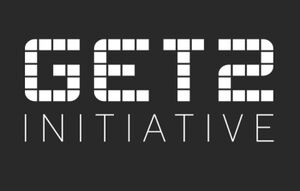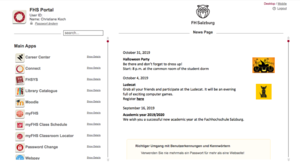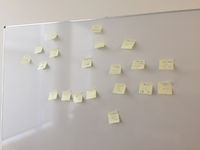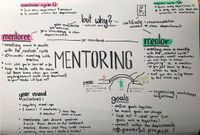Priorities:FH Salzburg Student Priorities
Contents
- 1 Cohort of 2023
- 2 Cohort of 2022
- 3 Cohort of 2021
- 4 Cohort of 2020
- 5 Cohort of 2019
- 6 Cohort of 2018
Cohort of 2023
Topic: Free period products
Women's bathrooms
(Hanna C. Trenkler)
Making period products freely available in university bathrooms is crucial for several reasons. It addresses period poverty, a significant issue where individuals cannot afford menstrual hygiene products, impacting their ability to attend and engage in academic activities. Providing these products at no cost supports gender equality by acknowledging and catering to a natural need of many students. This move would alleviate financial stress for those affected by period poverty and ensure that all students have equal opportunities to participate fully in their education, promoting a more inclusive and supportive campus environment.
Non-gendered Men's bathrooms
(Hanna C. Trenkler)
Incorporating free period products in non-gendered and male bathrooms is a progressive step towards inclusivity and support for all students, including those who may not identify with traditional gender norms. This approach acknowledges the diversity of the student body and the fact that not all individuals who menstruate identify as female. By ensuring these essential items are available in all bathrooms, universities can create a more welcoming and equitable environment. It demonstrates a commitment to the health and dignity of all students, irrespective of their gender identity, and promotes an atmosphere of respect and understanding across the campus community.
Topic: LGBTQIA+
Queer ÖH-Movie Night
(Hanna C. Trenkler)
Organizing a movie night featuring queer movies at the university, facilitated by ÖH, would be a valuable and inclusive initiative. Such an event would celebrate and raise awareness of LGBTQ+ stories, challenges, and triumphs, fostering a culture of empathy and understanding within the student community. By highlighting diverse narratives, the movie night could help to break down stereotypes and prejudices, contributing to a more accepting and supportive campus environment. Furthermore, this event would provide a safe space for queer students to see themselves represented in media, potentially offering comfort and a sense of belonging. It would also be an educational opportunity for all students to gain insight into experiences different from their own, encouraging open dialogue and a more inclusive campus culture
Student exhibition
(Hanna C. Trenkler)
Hosting an exhibition of student projects that focus on LGBTQIA+ topics would be highly beneficial for the university community. It would serve as a powerful platform for students to express and explore issues related to gender and sexual diversity, showcasing their research, creativity, and perspectives. Such an exhibition would not only highlight the importance of LGBTQIA+ studies within academic discourse but also foster a sense of pride and recognition for the work done by students in this area.
Moreover, this initiative could educate and sensitize the wider university population to the nuances and complexities of LGBTQIA+ experiences, promoting inclusivity and understanding. It would encourage dialogue among students, faculty, and staff, creating opportunities for learning and engagement beyond traditional classroom settings. Additionally, this exhibition could strengthen the university's reputation as a progressive institution that values diversity and supports its LGBTQIA+ community, making the campus a more welcoming place for everyone.
Cohort of 2022
Topic: Campus culture
Communication channel for announcements
(Elias Reich & Group)
No matter the project or problem you tackle, no matter how good your solution, in the end there needs to be promotion.
There somewhat already exist such promotion and communication channels, but those are lacking. Either cluttered and not structured like e-mail, inconvenient to navigate like the website or exclusive to degrees or years like discord.
For communicating event dates or club's meeting times there should be a seperate website. It best be linked on the FH online landing page, which all student and professsor use on a daily basis. A moderated, but otherwise free to edit, time tabel to track events would be the main focus of the website.
Another form of communication that could be improved on is offline communication. Flyers or posters are very underutilized at the FH. Simply talking to students (which would be easy, considering the topic) or professors making a quick announcement at the beginning or end of a class would be a more budget and enviormentaly friendly solutions. Offline announcements are also neccessary to spread awareness of this new online tool.
(Pop-Up) Events at campus
(Lena Pattis & Nina Stojakovic & Group)
There is often a lack of connections between Students from different courses. Campus Culture and interdisciplinary connectivity can only develop through shared activities on campus. Existing events, like parties, tend to be a good option for students to meet for the first time but smaller events targeted at special interests are more likely to help develop deeper and long-lasting relationships between the students.
Pop-Up Events can also be helpful for students to get out of their comfort zone or get experiences outside of their bubble, which will broaden their horizon.
Besides regular events initiated by UIF, we want to emphasise the possibility for students to set up their own events according to their interests and offer them help by getting them on their way.
Our suggestions for events: Board Games (spontaneous or themed evenings), Book Club, Clothes Swap Party or flea market, Sport events (organised tournaments), Jam Sessions, hiking excursions.
Multi-purpose room on campus
(Christian Weiß & Group)
What is needed at the FH Salzburg is a room that allows students to do whatever students like to do. A room where they can study, chill, play games, and have lunch, all in one place. A room that is accessible anytime. No need for reservation, students are always welcome. No more separation of departments. Here all students from all courses of studies get together.
The Multi-purpose Room should be comfortable too, containing sofas and stools and the interior should be modular to change the setting easily.
Brandbuilding for Campus culture
(Konstantin Kowarsch, Daria Kolosovskaia & Group)Having many ideas is a good way to start a project. Having a roof above all these ideas to combine and connect different perspectives is a good way to continue with a project. We decided to give our ideas a name. The "GET2-Inititative". Get2 gether. Get2 meet new friends for life. Get2 create a bookclub. Get2 Whatever you want it to be.
Where and how? This project will also open the door to include a Get2-Room (above) and informational support for the students.
Implementing GET2-Inititative we will be able to pitch our vision with a clear line. It will also ensure visibility for our ideas throughout the whole campus.
On one hand, students will know the brand and what is behind it, share it with others, raising this awareness.
On the other hand, with this brand we will try to bring the stakeholders of University of Applied Sciences in Salzburg onboard.
All in all, this branding can become a visualisation of extracurricular activities on campus. Via “GET2-Inititative" a campus opportunities and atmosphere can be promoted for new/incoming students. Which will beneficial for all: new students, current fellows, and stakeholders.
Cohort of 2021
Topic: Interdisciplinary Cooperation and Communication
Student Clubs
- (Amelie Arrer & Lars Kähler & Group)
- During Covid-Pandemic most of the sports offerings on our campus disappeared and since there are very few student clubs and those are very loose, we decided to tackle this Problem and found FH-Salzburg sport clubs. Regarding football and basketball we figured out that the Austrian College Sport Liege could be a good partner and a goal to participate in at the same time. Also, there is a good rowing infrastructure and clubs near our main campus in Urstein, which is why we are also very motivated to found a rowing team. We are generally convinced that if you can bring student sport to a higher level than trial courses, it lets students connect on a different level, gives our university a good reputation and would attract new students. Right now we are focused on basketball, football and rowing, since these are either popular kinds of sports or very team-building, but we are open minded for other activity-clubs.
"Every Day Open Doors" at the university
- (Helen Hinrichs & Sophie Frohnwieser & Group)
- Students don't really know much about other study programs on their campusses. Getting to know other students and lecturers as well as learn new things about other topics than your own classes can bring a lot of insights and advantages to the the students' and lecturers' and above all expand each one's horizon. That's why we thought of an easy but efficient solution:
Placing signs on every door which are colored green on one side and red on the other one. One side says "Welcome to the (e.g.) Audio Studio! Feel free to come in if you want to have a look and talk to us. We especially like to talk about Studio Recordings and Foley SoundDesign.". People working in a room at a time can change topics on the sign any time as well as turning the sign around, so it shows the red side saying: "Sorry, but we're very busy at the moment. If you're interested having a look into our work, please come back later." - his could lead to some inspirational conversations both sides can benefit from. Maybe this will help people finding people to collaborate with or simply to test their prototype or pitch their idea to. A big advantage will be that this idea is very easy to implement at low cost.
Interdisciplinary Fun Day
- (Benjamin Typplt & Johanna Wicht & Group)
- A day where students can get to know other study programmes through various activities and "events". Such as lectures taught by students, visiting lectures from other study programmes, students show-casing their projects, etc.
- This would require university-wide communication with all study departments and department heads, as well as management and the rectorate.
- The event should / could take place at the beginning of the academic year, once all the study programmes have started, perhaps October.
FHS InDi Hackathon Day
- (Amelie Arrer & Julian Nöbauer & Group)
- A 5-day hackathon (project week) with participants from all study programmes and perhaps visitors from other universities. "Problems" could be given by industry representatives (companies), which should then be solved by the various hackathon groups. The week should offer other fun side events, such as pop lectures, networking possibilities, presentations, scavenger hunt, parties, etc.
- At the end of the week, each group should pitch their idea and their should be monetary and non-monetary prizes (via sponsors). The judges could be lecturers from FH, representatives from the Start Up center and or the industry.
Student Corner
- (Benedikt Matysek & Helen Hinrichs & Group)
- Among other things, an important point when you want to connect students across disciplines is communication. Since communication at the FH-Salzburg is currently limited to a few media, the idea of the "Student Corner" is to offer a space where exchange can take place. Although there is a lot of information about various events and offers in the entrance hall and other places within the FH, it seems to be poorly organised and can therefore seem overwhelming. The existence of the notice board is also currently given little importance and it is only used to a limited extent as a communication medium. The summarising idea of the "Student Corner" is to present the offers and events of different courses of education in a summarising way and thus to draw the attention of different students who might be interested in a project. The extent to which further information would be listed in the "Student Corner" would remain optional.
Topic: Urgent Changes on Campus
Bicycle Stands in Kuchl
- (Lars Kähler & Group)
- At the Campus Kuchl is a necessity for a place for students to store bikes near the Matdador dormitory. A possible and unused location is available at the Matador-Dormitory. The main problem is communication. We as UIF act as a intermediary between considered parties, and show up students needs. Backed up by a petition and collected signatures. Further a cooperation with a university startup and bicycle stand manufacturer, called velovio, is considered.
Links:
FH Salzburg Wiki Page
http://universityinnovation.org/wiki/FH_Salzburg
Change Story Video:
Colleagues:
Candidates 2021:
- Amelie Arrer: https://universityinnovation.org/wiki/Fellow:Amelie_Arrer
- Sophie Marie Frohnwieser: https://universityinnovation.org/wiki/Fellow:Sophie_Marie_Frohnwieser
- Helen Hinrichs: https://universityinnovation.org/wiki/Fellow:Helen_Hinrichs
- Janette Kaspar: https://universityinnovation.org/wiki/Fellow:Janette_Kaspar
- Lars Kähler: https://universityinnovation.org/wiki/Fellow:Lars_K%C3%A4hler
- Benedikt Matysek: https://universityinnovation.org/wiki/Fellow:Benedikt_Matysek
- Julian Nöbauer: https://universityinnovation.org/wiki/Fellow:Julian_N%C3%B6bauer
- Benjamin Typplt: https://universityinnovation.org/wiki/Fellow:Benjamin_Typplt
- Johanna Wicht: https://universityinnovation.org/wiki/Fellow:Johanna_Wicht
Cohort of 2020
Managed MS Teams Group
(Lionel Asshauer & Group)
Since online communication among students or between students and lecturers is becoming increasingly important, there is a need for a unified platform in which information of all kinds can be exchanged. In addition to virtual meetings, all documents required for the courses should be available. In addition to classes the Teams platform offers the potential to become a central hub for information about whats going on in the school, like event information, publication of opening times, news, etc. in addition to links apartment & job exchange. As everybody is already using the platform for their classes, all the information is just one click away, making it easier to connect with each other.
Information Messaging Service
(Heiko Lehrer & Group)
During our research in combination with the experiences we have gained over the last months of the corona pandemic, we have come to the point that the main problem in our university is information and information exchange. After talking to our friends and colleagues we have ascertained that about half of all the problems and misconceptions could have been avoided if we had a working and constantly updated information service. The messaging service of our choice is WhatsApp, due to its extensive use in our university. The implementation of such a service would look similar to online newsletters. Students can sign up and get information referring to the newsletters’ purpose. For example, there would be a newsletter concerning exams. By subscribing to this newsletter, students will be informed if a test is coming up. Of course, this service is continuously enhanceable (generate new newsletters aso.).
Freshmen Onboarding
(Andreas Golser, Julia Armstorfer & Group)
„Freshman Onboarding“ should support new students to find their way into university life. The aim is to give the newcomers advice on how to organize their studies, to inform them about existing events and groups and show them that students at the Salzburg University of Applied Sciences have a space for innovation.
E-Learning "Coffe Shop"
(Lionel Asshauer, Heiko Lehrer & Group)
Interested Students and Teachers come together in a monthly meetup to talk about the current state of E-Learning. To get the conversation going, a team of moderators leads through a series of different design thinking techniques, allowing everyone to gather new insights from the others perspectives. Additionally people can give short workshops about techniques that have proven to be succesfull.
Links:
FH Salzburg Wiki Page
http://universityinnovation.org/wiki/FH_Salzburg
Change Story Video:
Colleagues:
Candidates 2020:
Heiko Lehrer: https://universityinnovation.org/wiki/Fellow:Heiko_Lehrer
Lionel Asshauer: https://universityinnovation.org/wiki/Fellow:Lionel_Asshauer
Andreas Golser: https://universityinnovation.org/wiki/Fellow:Andreas_Golser
Julia Armstorfer: https://universityinnovation.org/wiki/Fellow:Julia_Armstorfer
Cohort of 2019
Event Information Page
(Cosima Decho, Christiane Koch)
The account welcome page of every student at FH Salzburg looks the same: you can check your emails, class schedules etc. as well as having a look at university news. Unfortunately the news which are displayed there aren't updated regularly (last update was about a year ago). So we thought it would be a great idea to optimally use that space with event invitations, guest lectures, information about the university etc. which is visible to everybody and all students, as well as staff, have an insight of what is going on.
FH Challenges
(Nora Bendl, Julia Brunhuber, Cosima Decho, Christiane Koch, Eva-Maria Kremser, Maximilian Lugmair, David Pollhammer)
The FH Salzburg hosts an event called "Robothon" annualy, which is all about programming a robot within 24-hours. Our cohort thinks this is a really great event but wouldn't it be cool, if there would be something alike which isn't just for students who are able to program? So we came up with the idea to host the FH challenge, which is open to any student from any study program of the FH and the theme could e.g. be Innovations in the healthcare sector, where not only specialists from those study programs are needed, but as well as programers, project managers and so many more. The goal of the challenge is to finish up that project with the team within a given time of days/hours and the team with the most innovative idea will win a prize.
Environment + Health
(Christiane Koch, Eva-Maria Kremser, Maximilian Lugmair)
Our university has around 2.700 students, which means a lot of people who produce a lot of waste every day. Since all over the campus garbage isn't separated at all, we started with a prototype of our own reciycling system. Our aim is to raise students' awereness and make our university a better and more environmently friendly place.
Philosophy Events
(Julia Brunhuber, David Pollhammer)
The idea is to host events that support philosophical and humanistic thinking, give rooms for discussions and broaden the student's horizons. Topics that can be discussed are for example movies, latest geopolitical/economic development, books or ethic questions. Due to different settings the necessary support to develop these skills outside the lectures. Students should be encouraged to share their opinions, learn to build arguments and to understand different perspectives and viewpoints. Resources needed are: rooms, marketing tools and motivated, passionate students.
Internationalization - projects as part of lectures with partner universities
(Nora Bendl, Eva-Maria Kremser)
The ability of working in an international context is very popular when it comes to recruiting. Not anybody has to chance to gain this experience in their job so we thought it would be beneficial to all to implement this to the lectures. The concept is to work together with partner universities in certain lectures. One example is to work out a project in a lecture each organisation individually and then challenge each other in a contest or interacting with each other in a video conference.
This concept of having a project as a part of lectures with partner universities can be implemented so several different lectures in all studies. It is beneficial to foster partnerships and students can gain experience of international working contexts.
Links:
FH Salzburg Wiki Page
http://universityinnovation.org/wiki/FH_Salzburg
Change Story Video:
Colleagues:
Leadership circle 2019:
Nora Bendl: https://universityinnovation.org/wiki/Fellow:Nora_Bendl
Julia Brunhuber: http://universityinnovation.org/wiki/Julia_Brunhuber
Cosima Decho: http://universityinnovation.org/wiki/Cosima_Decho
Christiane Koch: http://universityinnovation.org/wiki/Christiane_Koch
Eva-Maria Kremser: http://universityinnovation.org/wiki/Eva-Maria_kremser
Maximilian Lugmair: http://universityinnovation.org/wiki/Maximilian_lugmair
David Pollhammer: http://universityinnovation.org/wiki/David_Pollhammer
Cohort of 2018
Pop-up learning lecture (PULL)
(Patrick Schmid)
The idea of PULLs is, that every student can hold an open lecture about a topic he is interested or passionate about. All studies are invited to join or participate. The whole idea is, that everyone can join the discussion.
Advantages:
• Knowledge sharing
• Inspiration Friendship
• Finding a team
• Finding a project
X-treme Class
(Vanessa Radunz)
The X-Treme class is based on the idea of combining different people to investigate a particular task. In order to achieve the best possible solution, recent statistics have shown that collaboration between experts from different disciplines is the best and most effective way. Students should be encouraged to share their knowledge with other students and develop a product together. A teacher/professor is needed who is in charge of the whole project and especially someone who can put himself in the shoes of any team and motivate them if they move in the wrong direction.
Mentoring
(Lara Goritschnig)
The plan is to offer a mentoring program at the FH Salzburg. Higher-up students have to attend a course to become mentors and they will receive a certificate or a recommendation afterwards. The intention is to encourage the students to connect with people from other departments and to make it easier for freshmen to get advices and tipps.
At first we could try to find teachers or stakeholders who specialise in this area so eg. our faculty champions or the ÖH FH Salzburg (student representation) and the facility manager who could tell us which rooms are available. And we have to find out how we could give the „mentors“ a reason to take part at this program - so e.g. with a certificate or a recommendation. Another thing to consider is the system how to connect the mentors and the mentorees per coincidence.
Online Classes
(Dominik Hofer)
The next steps that are need for the online courses to become reality. By keeping the steps small but steady, and due to the pure amount of work, this project needs, it will be a long-term project and probably even inherited by the next UIF FH Salzburg generation.
Different Tasks that need to be accomplished:
Finding a professor that is willing The core component is to find a professor who is willing to determine his/her time on the task of creating the material which is needed for the online class. The first potential professors could be one of the faculty champions. Preferably it should be a topic that interest a broad band of students or needs to be taken by many. Project Management for example is a class pretty much every major has to take and therefore would resonate in quite a lot of views and therefore a lot of feedback to make the online classes better. Creating the new site in the existing network To achieve this, the technical support of the FH Salzburg needs to be involved. The task for them would be to create a platform that offers the professors (due to the majority not being technicians) to easily upload their data and edit the sited accordingly (where should be text, videos, etc.) Due to this being a task that takes approximately 2-3 years (due to the team being of moderate size and having other projects as well), this will not be our first solution. A prototype website will be created that will resemble the official website as good as possible. This allows us to already gain feedback in a moderate amount of time. Filming and video configuration To create high quality videos, some students of the study “Multi Media Art” need to be taken on-board. They have a film study, cameras, and audio studio etc. This would allow us to create high quality videos from the beginning, which would significantly improve the likings of the online courses (bad quality will scare potential students away). Legal Restrictions Due to the law in Austria, the legal department needs also to be involved. They need to analyse the process and give us further information for the online course platform to not break any laws (Mental property claims, plagiarism, etc.) Some processes, that are mentioned above, can be parallelised: The consulting of the legal department, creating the material for the courses, and the website (+ prototype) itself. The creation of the course itself will be the final part.
After the first course was launched and feedback was received, the structure needs to be adapted to the students needs. If this is done, it is believed that a second course would be of interest.
Different tasks needed to be accomplished for every project:
Finding a room: The most important thing is, that our university will assign us a dedicated room for the projects.
Finding students: From our feedback, there are plenty of students who would the projects and already asked for registration.
Spread the word: It is important that when the project goes live, that every course of studies at least knows that there is such thing, where students can join and meet people from other studies.
Links:
FH Salzburg Wiki:
Change Story Video:
Colleagues:
Leadership circle 2018:
Related links





